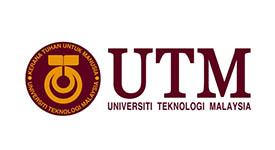Overview of Bachelor of Engineering (Mechanical-Automotive) in Universiti Teknologi
Malaysia
The Automotive Engineering course was first offered by UTM during the 1999/2000 session. The Automotive course is offered as a specialisation of Mechanical Engineering, covering the areas of automotive design, vehicle dynamic and structure, power and transmission (power train), vehicle aerodynamic, electronics, ergonomics, automotive material and production. Hence, graduates of this course would fulfill the need for engineers in the field of Mechanical Engineering as well as the automotive field specialisation.
An automotive engineer will perform activities according to the job scope in the field of research, design, development and production of various types of heavy or light vehicles. In creating or producing the latest design for the proposed vehicle, they will utilise the knowledge learnt such as engine and transmission, vehicle dynamics, aerodynamics, analysis of vehicle structure, electronics and others. These will be undertaken based on quality assurance in order to fulfill the requirement of standards, performance and safety. Usually the automotive engineer works in the area of automotive design and production.
Some may find a career in commercial vehicle manufacturing such as lorries and buses, sport cars, racing cars, tractors and even trains. The market for engineers in the field of automotive in Malaysia has grown rapidly due to the growth in the automotive sector championed by PROTON, PERODUA, MODENAS and HICOM. Several other foreign manufacturers have set up assembly plants for various types of vehicles in Malaysia. In order to support the development in the automotive industry, many automotive components companies have been set up. High performance vehicle sector has also found its way in Malaysia with the involvement of PETRONAS and is expected to grow tremendously.
Additionally, some firms such as Master Builder, Malaysian Truck & Bus and others have ventured into heavy vehicle production, including buses and lorries. Therefore, UTM graduates in the field of Automotive Engineering have a wide career opportunity to take up positions as engineers and managers in the automotive industry either in Malaysia or overseas.
PROGRAMME STRUCTURE
) Internal Combustion
Internal Combustion studies the combustion processes in a cylinder. In this respect, the principles of thermodynamics are used to identify the combustion process. Factors that affect combustion are also studied.
b) Automotive Engineering System
This area covers the auxilliary systems found in an automobile. Basic knowledge on the hydraulic and pneumatic system requirements, electronic management system and electrical power supply are introduced.
c) Automotive Structure
This field ensures the integrity and strength of a particular material to be used. Using dimensions and tolerances, strength of material, thin wall beam deflection and open section analysis, the structure can be determined.
d) Automotive Design
Automotive design is a study of technical knowledge which is combined with capability in planning, evaluating and initiating a design activity.
e) Vehicle Dynamics
This area focuses on motion on an unleveled and linear surface which will give rise to different movement characteristics.
f) Automotive Production
This field focuses on various methods of automotive component assembly and manufacturing technologies in producing major automotive components.
ENTRY REQUIREMENTS
To produce graduates who are able to:
(i) demonstrate their academic and technological excellence professionally and globally, particularly in areas related to mechanical – automotive engineering practices and contribute innovatively to the nation’s wealth creation.
(ii) advance their careers by assuming increasing levels of responsibility, leadership and acquiring professional and advanced academic qualifications.
(iii) recognize and practice professional, ethical, environmental and societal responsibilities and value different global and cultural aspects of their work and society.
(iv) adapt and communicate effectively and be successful working with multi disciplinary teams.


